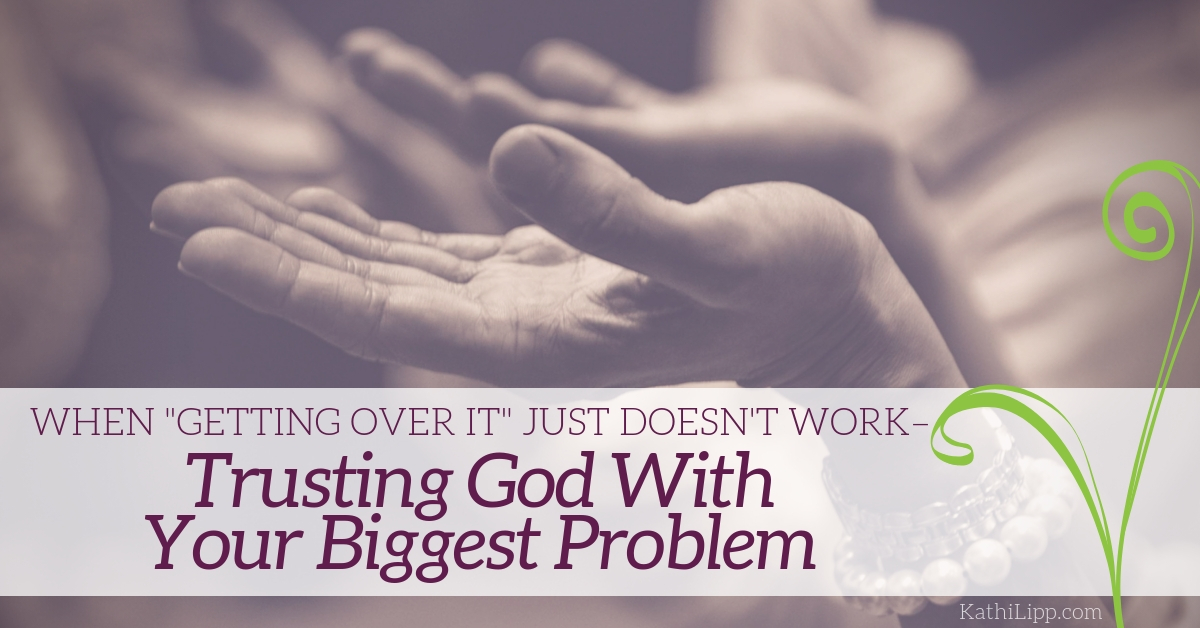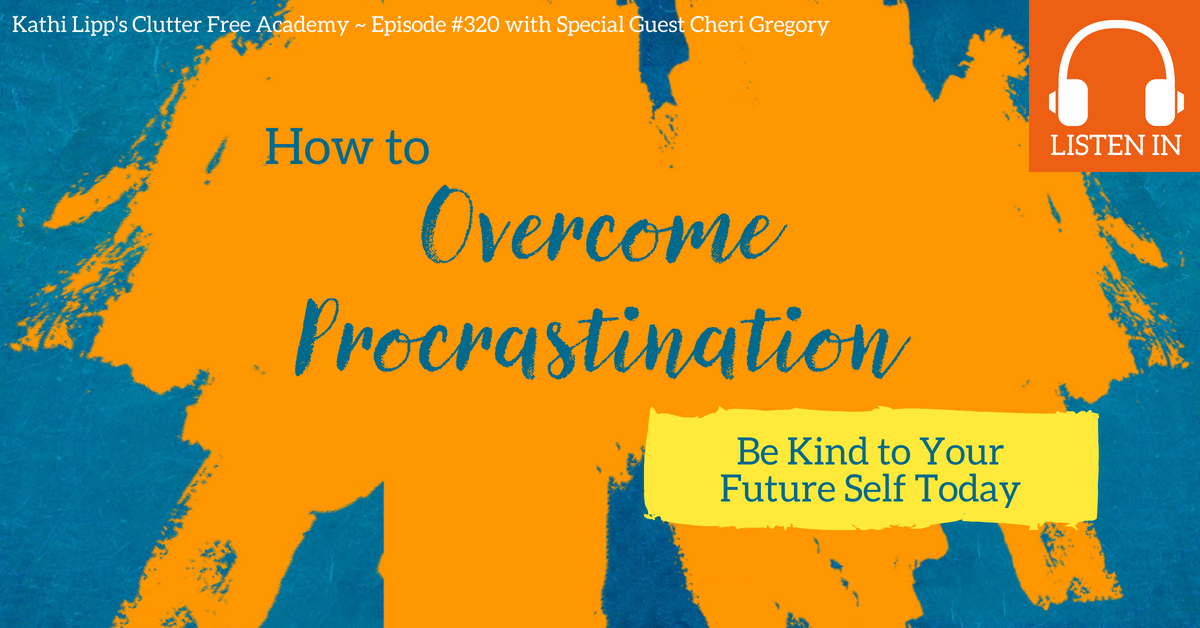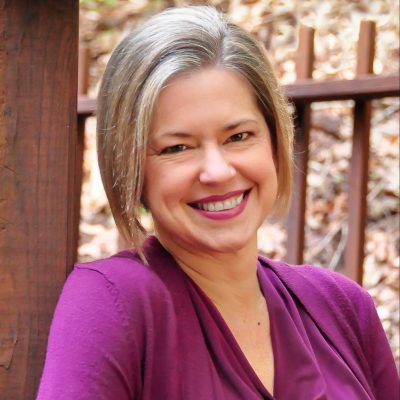
#386: Dealing with Clutter in the Hardest Time of Your Life
Have you ever made progress on your decluttering journey only to stop when something unexpected and unwelcome happens? Maybe you have a loved one going through hard times and you want to help, but don’t know where to begin. This week, Kathi chats with Niki Hardy, author of Breathe Again: How to Live Well When Life Falls Apart, about what to do in difficult seasons.
In this episode, you’ll learn tons of practical wisdom about what you can do in hard times, whether you or someone you love is directly affected. You’ll hear about how to:
- Ask for and accept help from others when you need it.
- Offer help in a way that blesses those in hard times.
- How taking care of your future self is crucial in tough seasons.
If you’re curious about the Enneagram after hearing Niki mention it, click here.
You can order your own copy of Niki’s book Breathe Again: How to Live Well When Life Falls Apart on Amazon today.
Giveaway
 As a bonus for two lucky listeners, we are giving away two copies of Niki’s book, Breathe Again: How to Live Well When Life Falls Apart! Enter below by commenting and letting us know:
As a bonus for two lucky listeners, we are giving away two copies of Niki’s book, Breathe Again: How to Live Well When Life Falls Apart! Enter below by commenting and letting us know:
When you have been in a situation where you needed help, what is something that someone has done for you that offered practical, timely help in that situation?
We would love to stay connected.
To share your thoughts:
Leave an honest review on iTunes. Your ratings and reviews really help and I read each one.
Transcript
Read along with the podcast!
Clutter Free Academy Podcast #386
Dealing with Clutter at in the Hardest Time of your Life
<<intro music>>
Kathi – Well hey, friends! Welcome to Clutter Free Academy, where our goal is to help you take small, doable steps to live every day with less clutter and more life. You know, one of the things I hear so much in Clutter Free Academy, our Facebook group, and from you, individually, or when I go speak is, “Decluttering was going so well until…” and whatever that ‘until’ is. Whether it was a physical illness, it was the death of somebody you cared deeply about, a change in your life that was unwelcome and unexpected. Things were going well until. Today on the podcast I want to talk about the ‘until’. Today, doing that, we have Nicki Hardy. She is the author of this beautiful book Breath Again: How to Live Well when Life Falls Apart. Niki, thank you so much for being on Clutter Free Academy.
Niki – Thank you for having me. It’s a joy to be here.
Kathi – I love that, even in just our brief time talking before we got onto the podcast, “Okay, this could be really heavy.” You are light and wonderful, so you are the perfect person to talk about this with. I know your book isn’t overtly about clutter, but can you tell us a little bit about what happened in your life? Then I’ve got some questions about the stuff in your life and some of the processes you had to reevaluate in your story.
Niki – Yes, of course. I love the way you say, “Everything was going right until…” I think for some of us, it’s one big moment and for others it’s a slow unravelling. I think I had three big ‘until’ moments. I lost my mom to cancer, and hers was aggressive; lung cancer. Then just six years later my sister had the same thing and unfortunately she passed away at just 43 after just 14 months. Then six weeks after losing Jo, I was diagnosed. It was three consecutive side-swipes by life. Mine wasn’t lung cancer like there’s. Mine was rectal cancer. I can only just say that out loud and on-air, ‘cause it’s not the sexiest of cancers. It doesn’t come with a pretty pink bow or a cuddly teddy bear.
Kathi – How many walks are there for rectal cancer?
Niki – There are more than you’d think. It’s the number 2 cancer killer in the country.
Kathi – It is? Okay, Niki, I had no idea. Zero idea. People don’t talk about it.
Niki – Yeah, people say you’re never too young. I don’t think people do. It’s silent because, if you’re like me, you have absolutely no symptoms. It comes out of the blue, and often when you do find out about it, it’s too late. So, I would say to anyone, “You’re never too young to love your bum.” Go and get that lovely colonoscopy.
Kathi – Most famously, at least that I know, Farrah Fawcett Majors was the one that had rectal cancer and sadly, passed away from it. So, you’re never too young to love your bum. You know what? There needs to be a bumper sticker. Okay, so, can I tell you, I’m one of those people who have put it off? After my last podcast today, I’ll be calling to make the appointment. Thank you for that.
Niki – I’m so glad.
Kathi – Thank you for that nudge. Thank you for that kick in the rear that I so desperately needed. Sorry, that’ll be the last rear joke of the podcast. How does one function? Okay, first of all, losing your mom. I’ve lost my dad and it was expected. It was known. It still took my breath away, and can I just say grief is the sneakiest emotion of them all? There’s that. You lost your mom. Then, not in the natural order of things, you lose your sister. So, two deaths of women who were too young to be gone. Then a diagnosis for you. What was the biggest impact of that diagnosis? How did that change your life that people would have noticed?
Niki – Well, noticeably, I’m a Brit with a stiff and perfectly waxed upper lip and I can keep calm and carry on with the best of them. So, on the one hand, I just kept going. I was determined to survive. My faith, my grit, and my stiff upper lip were going to get me through this. At the same time, I was falling apart. So, my friends who have read my book have said, “I had no idea you were feeling like this.” And I replied, “Nor did I until I wrote it down afterwards.” It had a huge impact on my faith. It had huge impact on our kids, who, as far as they were concerned, cancer meant you were going to die and die quickly.
Kathi – Yes.
Niki – How we told those; how we interacted with our church and how honest we were. All those kinds of things. On Clutter Free Academy, we talk about clutter, but it was as if my life had shattered, and I was surrounded by rubble, not clutter. I had medical paraphernalia everywhere, but I also had emotional/spiritual/physical rubble.
Kathi – There’s a dimension that is added to your life. It’s not just you don’t feel well. Like you said, the medical paperwork is another full time job. I have, fortunately, been very healthy throughout most of my life, but the couple of times we’ve encountered surgeries or something like that, it’s another job to be able to stay on top of that. Then, like you said, the medical paraphernalia; having to incorporate that into and already busy home? I can’t even imagine. So, I know you’re going to be on a lot of podcasts and a lot of places talking the deep, spiritual stuff about this, but here are my questions for you, as they relate to clutter. I think clutter is a physical manifestation of our overwhelm. When you see somebody’s house is out of control, or you see that their kids are showing up to school and they don’t look like they’re out of a Macy’s ad. When those things happen, I want to know what do you do as the person who is in the midst of it? I’d love a couple of practical steps. Then, I would also love to know, if you are my friend and you’ve got that stiff upper lip, how do I engage in order to help? Let’s start with you. I’m sure you did things wrong, but if you could go back and teach your sick self what to do, what would you tell her?
Niki – I think the first thing would be to accept help. That is so hard because it means accepting we need help. We’re in a culture that’s a ‘make it happen captain’ culture. We celebrate people who have made it on their own. So saying, “Help!” sounds like we’re uttering this four letter word. So, admitting we need help is, not only an emotional step, but it also requires us to allow people into our mess. Emotionally and practically as well. To allow somebody to come and fold your laundry requires they are going to handle your undies and see that your laundry room is a bomb site. Even if they want to do the washing up or take the dog for a walk, they’re going to see that all that stuff is in a mess. So, it requires a level of letting people in, which requires letting our boundaries or our walls down a little bit. I kept mine up for far too long to keep it all together.
Kathi – Letting people in requires a certain amount of letting go of control. That’s very scary when you’re already in a situation where you’re not in control.
Niki – Exactly. I talk about, in the book, about choosing ‘brave’. I think, asking for help, asking for somebody to come and drive you somewhere, or take your kids to practice is a really brave choice. We think bravery is something that’s huge and comes with the genes we’re born with, or not born with, but it’s actually a choice. It doesn’t need to be big, but it does need to be intentional. It can mean getting out of bed when depression hits hard. That’s the kind of brave choice, and I think allowing people in is a brave choice.
Kathi – So, what kind of people do you let in? Because there are safe people and there are not so safe people. I have never been in the position you have, of being so physically compromised, so I want to know: What are the hallmarks of the people that you should let in, and the others who you say, “You know what? A gift card would be great.”?
Niki – I think that’s so true. There are safe people and there’s safe things you can tell more people. Like, I was quite happy sharing, for the most part, prayer requests. People would share when we needed meals or rides for kids. Those are very safe things to talk about. Letting people into the feeling that ‘when I got cancer, the whole world got cancer’ and every argument with my husband meant that our marriage was one the rocks, and every time my teenagers were snarky, it meant that they weren’t handling my cancer and they were doing drugs. Those require a certain closeness of people. I found that the people who were safest in that, were the people that were willing to not try and fix it. Who were willing to say, “Yes, this sucks. I am so sorry.”
Kathi – “This is so hard. I’m so sorry.” I love that. Okay, here’s what I would love. I would love for you to be able to tell me. Say, my friend has just been diagnosed and I’m scared. One, I don’t need her to fix my scared. I need to deal with that on my own, but what are the tangible things that I can do? The offers I can make? And how do I go about making those offers in a way that will be supportive to her? All I want to do is help, but I don’t want to overstep my bounds. I don’t want to be a downer. What are some physical, tangible things that I can do for her to help her out?
Niki – It’s a great question. I think it’s so important to talk about these, because being on the receiving end of it, I’ve had people do wonderful things and people say terrible things. I think that acknowledging that it’s really hard and you’re really sorry that they’re going through this. I think, asking, specifically, what you can do to help, but also acknowledging that they might not know.
Kathi – That’s my concern.
Niki – I think saying something like, “I really want to help. What specific things can I do? I’m thinking I could…x, y, or zed. Let me know if that would help.” Then saying something freeing, like, “No need to text me back today.” Or “How are you doing today?” Because it might be different to yesterday or five minutes ago. Then, I think one of the best things we can do is, when somebody is struggling, sit with them in the pain. When they’re doing well, do well with them. Not necessarily talk about the last surgery or the last chemo or whatever. When they’re doing well, celebrate with them.
Kathi – I love this. I love the offer of, okay, I’m just going to be British here for a second, “x, y, and zed”. That makes me so happy I can’t even stand it. It signals the level of your willingness to help. “Can I bring you a meal?” “Can I take your kids to soccer practice?” Or, “Can I go sit with you while you’re in chemotherapy?” “I have friends who have a vacation home, so when you’re past this, let me know when you have a weekend and we’ll get that settled.” Whatever it is, it signals. I know when I’ve been in hard situations, I haven’t wanted to ask for too big a favor. That says, “Hey! We are willing! My husband is willing to come and do the yard.” Or whatever your gifts are. Whatever your talents are, to be able to go in. I love that what you’re doing is signaling people. You said that your journey through all these griefs has changed how you viewed clutter and staying organized. Can you tell me a little bit about it? It doesn’t have to be radical, but I’d love to know how that changed for you.
Niki – I think that one of the key things is that when my surroundings are in a mess, it adds to the overwhelm. It adds to the emotional turmoil if there’s external turmoil. So, I’m very fortunate that I have a very organized, and a very tidy husband.
Kathi – God bless him.
Niki – God bless him. So, that was a huge help, but we had to do things like, I moved into a room we had downstairs so that he wouldn’t be disturbed. So, trying to keep medical paraphernalia out of the way so that it wasn’t top of mind the whole time. The way I view clutter now, is that it is an additional stress in my life that I don’t actually need. I’m a big fan of Greg McCowan who wrote Essentialism.
Kathi – Yes!
Niki – I’m a seven on the enneagram and I’m just go go go, fun fun fun. So, I often don’t finish tasks and put things away at the time. That has changed, because I think I will want that away. The future me will need that to be away. So, that has really helped.
Kathi – I love that. We have a concept around here about taking care of your future self. We always assume our future self is going to have more energy, more time, more desire. When you have gone through something like you have Niki, that fantasy is dispelled. There isn’t, necessarily, a block of time where you’re just going to say, “You know what? I really feel like organizing all my office supplies today.” There isn’t going to be extra money, necessarily. There’s not going to be, necessarily, extra energy. So, if I can do it now. I’m not doing it because I want to be the Martha Stewart of homes. I’m doing this because I want to take care of my future self who has a cold; who has a friend who needs me to watch their kids. I want to take care of that future self so she can do what God has called her to do.
Niki – Exactly. I’ve learned that if I do it now, it takes half the time it would if I did it in the future. It’s a way of loving myself. One thing I’m terrible at is resting and sitting and reading a book when it’s not five minutes before I turn the light out. Those are the things I’m trying to incorporate so that I can live well when life falls apart, and when it’s good.
Kathi – When you say it’s half the effort to do it now as it is to do it later, it’s so true. We add the shame to it of “Why did I leave this out?” There’s an emotional component. When you put something down, your whole family says, “Oh, good. This is where we put things down now.” We don’t need any of that. Niki, I know your book is filled with wisdom and emotional health, but thank you for getting practical with us. I really appreciate the tactical ways to support yourself through a crisis and to support others. Thank you so much for that.
Niki – Oh, you’re welcome. One of the reasons I wrote the book was because there were so many books out there that were motivating and inspiring and encouraging, but I would read them and go, “But how do I do this? How do I just trust God when life has fallen apart? What do I do with my anger? How do I practice gratitude? What does that look like when you’re just angry?” So, the book is deeply practical because we need to be able to touch it and feel it and see it in action.
Kathi – And make it happen. This is so good. Guys, we have a couple copies of this to give away, so here’s what I’d love in the podcast notes. I would love to comment for me and tell me, when you have been in a situation where you’ve needed help, what is something that someone has done for you that has offered practical, timely help in that situation? Niki, I so appreciate your time and your willingness to come on Clutter Free Academy. Thanks for being here.
Niki – It’s been a joy. Thank you for having me.
Kathi – And friends, thanks for joining us. You’ve been listening to Clutter Free Academy. I’m Kathi Lipp. Now, go create the clutter free life you were always intended to live.
<<music>>
*see show notes in podcast post above for any mentioned items
Meet Our Guest

Niki Hardy
Niki Hardy is a Brit in the USA, a rectal (yes, rectal) cancer survivor, pastor’s wife, tea drinker and teller of terrible jokes. As a speaker and the author of Breathe Again: How to Live Well When Life Falls Apart, she’s all about meeting you when life’s not fair and helping you embrace the reality that with God, life doesn’t have to be pain-free to be full, then go live it.
Learn more at nikihardy.com









 If you’re committed to really ditching those crazy expectations you’ve put on your life, this book club is for you. We’ll be diving into the concepts of identifying and destroying those bullies that keep us in try-harder living rather than living our best life.
If you’re committed to really ditching those crazy expectations you’ve put on your life, this book club is for you. We’ll be diving into the concepts of identifying and destroying those bullies that keep us in try-harder living rather than living our best life.







